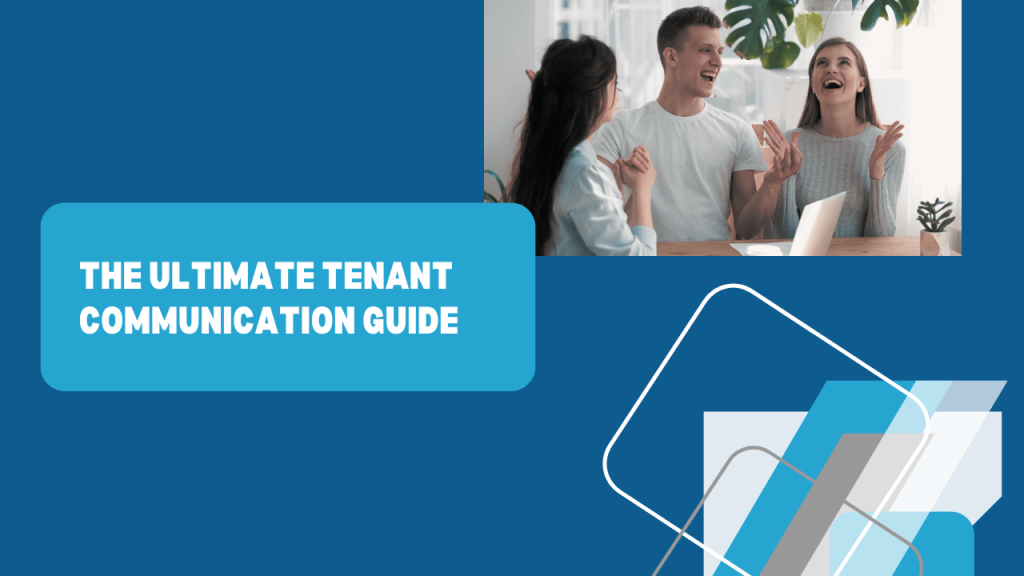
Positive and responsive communication with tenants is an important part of developing a good relationship with the people who are renting your home.
This is important for a number of reasons. It protects your property, for one. It ensures your rent is paid on time and your lease is followed. It also makes the entire rental process pleasant. More profitable, too.
The important part of landlord/tenant relationships is balance. You want to have a good relationship in place, that’s driven by empathy and compassion. But you also want to hold your tenants accountable. The best way to find this balance and to use it to your advantage is to communicate well.
Effective tenant communication not only helps in resolving disputes swiftly but also sets the foundation for trust and cooperation throughout the entire tenancy.
We do a great job of communicating with both owners and tenants in LA. We’re here to help you understand some of these essential tenant communication tips, which will in turn enhance your relationship with your residents.
Why Tenant Communication Matters
We have talked to some landlords who don’t communicate with their tenants at all. There’s sort of a don’t-ask-don’t-tell system in place, and we think that’s a bad idea. Maybe you think you’re lucky because your tenants never reach out to you with any questions or concerns. But are you lucky, really? You don’t want to be approached for every minor inconvenience that your tenants suffer, but you also don’t want them feeling like you don’t need to know anything. If a tenant has not requested a repair in two years, that should make you wonder.
Be the leader when it comes to landlord and tenant communication. Establish your own expectations and invite tenants to share theirs.
Effective communication is the foundation of any successful relationship, and the landlord/tenant dynamic is no exception. This matters because a clear and open channel of communication can lead to:
- Problem Prevention. Addressing minor issues before they escalate into significant problems is a great way to protect your property and your relationship.
- Tenant Retention. Happy tenants are more likely to renew their lease agreements. This will reduce your vacancy and turnover costs, making your property more profitable.
- Reputation. Positive interactions with tenants can enhance your reputation as a trustworthy and reliable landlord.
Establish good communication even before your tenant becomes your tenant. During the marketing, showing, screening, and leasing phases, you have an opportunity to demonstrate that you value communication and you’re willing to be transparent and open. Tenants will notice this, and that will only make your property even more attractive to them while they’re making decisions about where to live next.
The Impact of Technology on Tenant Communication
Communication has been made both easier and more complicated thanks to technology.
We now have the tools and the platforms to communicate faster and more directly with the people we need to reach. However, technology has also led to the expectation of instant responses.
You’ll have to navigate this as a landlord trying to remain approachable and accessible.
Technology is actually great for enhancing landlord/tenant communication. Various tools and platforms streamline interactions, making it easier for landlords to share information and for tenants to voice their concerns.
For example, online portals are pretty standard now, but they weren’t always. Thanks to these portals, tenants and landlords can stay in touch and share information. Maintenance requests can be made online. Photos can be included in the description of the problem, making it easier to diagnose the issue and send the appropriate help. Rent can also be paid online, and chats can go back and forth between you and your tenant.
There are also mobile applications that enable tenants to submit maintenance requests, pay rent, and access important documents from the convenience of their smartphone devices. This immediate access not only increases efficiency but also empowers tenants to manage their rental experience proactively.
Platforms that facilitate real-time communication, such as chat features or messaging apps, allow landlords to respond quickly to inquiries, creating a sense of accessibility and support.
The challenge, of course, is that not all landlords in LA have access to this type of technology. As property managers, we have extensive software that allows for the online rental payments and the tenant portals. If you want to invest in better communication with your tenants, you might need to look for technology that meets this need without requiring a large investment from you. Luckily, there are plenty of apps and platforms that can do this.
Embracing these technologies not only strengthens the landlord-tenant relationship but also reflects a modern approach to property management that can set landlords apart in a competitive market.
Ultimately, leveraging technology contributes to a smoother, more transparent communication process, enhancing the overall rental experience for both parties.
Tenant Communication Tips for Landlords
We probably didn’t have to sell you too hard on the value of good communication with your tenants. Now that you understand the impact it can have on your rental experience and your earnings, let’s take a look at some of the immediate and actionable things you can do to establish good communication practices from the start and improve upon any communication challenges you may be facing.
- Establish Clear Communication Channels
Define clear channels for communication from the start. Whether it’s email, phone calls, or a property management platform, make sure tenants know the best way to reach you for different types of inquiries. Find out how they’re most comfortable communicating, too. You don’t want to waste your time leaving voicemail messages for a tenant who is only willing to communicate via texts.
- Set Expectations Early
Even before your tenant moves in, there should be a focus on good communication. Once the tenant is approved and the lease is signed, you’ll want to be transparent about what tenants can expect from you and what you expect from them. Provide detailed information about rent payment schedules, maintenance procedures, and your availability. Let them know how to handle emergencies, and what constitutes an emergency. You want to make sure you and your residents are on the same page from Day One.
- Be Proactive and Responsive
Proactive communication can prevent misunderstandings and conflict. Regularly check in with tenants to ensure everything is running smoothly. When issues arise, respond promptly and professionally. You want to be able to resolve disputes without escalating the situation.
- Document Everything
Keep written records of all communications with tenants. This documentation can be invaluable in case of disputes or misunderstandings. Use emails or a communication log to keep track of interactions. You never want a conflict to turn into something more, but if it does, you’ll be glad you have the documentation you need.
- Listen and Empathize
Good communication is not just about speaking; it involves active listening. Show empathy and understanding when tenants express concerns. Acknowledging their feelings can go a long way in resolving conflicts amicably.
- Use Technology Wisely
Leverage technology to streamline communication. As we mentioned earlier, property management apps can simplify rent collection, maintenance requests, and announcements, making it easier for both you and your tenants.
- Provide Clear Lease Agreements
Ensure lease agreements are clear, detailed, and easy to understand. Go over the lease with tenants, highlighting crucial points and answering any questions they may have. The lease will be the first place you or your tenants turn if there’s a question, an uncertainty, or a dispute.
- Communicate Changes Effectively
Whenever there are changes that affect tenants, such as rent adjustments or maintenance schedules, communicate these changes well in advance. Provide a written notice to ensure there is no confusion. At lease renewal time, for example, you’ll want to reach out in advance to find out whether tenants are planning to renew or move on.
Regularly ask tenants for feedback on your services and communication. This can provide valuable insights into areas for improvement and show tenants that you value their opinion.
Effective communication is at the heart of every successful landlord/tenant relationship. By employing these tenant communication tips, landlords can build trust, enhance tenant satisfaction, and improve retention rates.
Good communication should never be taken for granted.
We know it’s not easy to keep up and to remain available, especially if you’re a Los Angeles landlord with a full-time job, a family, or other responsibilities and passions that are fighting for your time.
 Consider professional property management. As your LA property management partner, we’ll handle all the communication and the entire tenant relationship. We’ll do it expertly.
Consider professional property management. As your LA property management partner, we’ll handle all the communication and the entire tenant relationship. We’ll do it expertly.
Let’s talk about what that might look like for you and your property. Relationships with tenants aren’t always easy, and they don’t always come naturally. Contact us at El Camino Property Management, and we will talk about how we keep communication a priority when we’re leasing, managing, and maintaining your Los Angeles rental property.
Please note this information is deemed reliable, but not guaranteed. Please consult appropriate professionals for specific situations.



